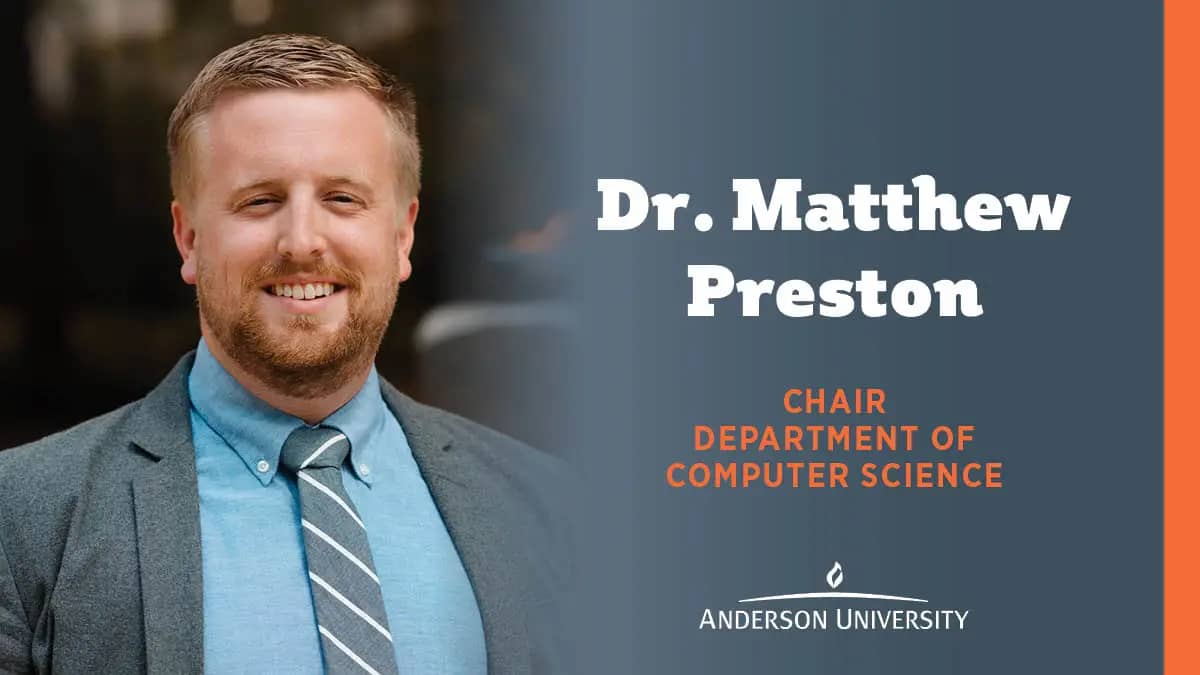
Dr. Matthew Preston Receives Networking Grant from CCCU
2 MIN. READ
Anderson, Ind. — Anderson University’s Dr. Matthew Preston, chair and assistant professor of computer science, is part of a multi-disciplinary team that has been awarded a networking grant through the Council of Christian Colleges & Universities (CCCU).
The project is “The Missionary Database and Map Initiative (MDMI): A Collaborative Digital Humanities Project”, which will provide valuable evidence for qualitative researchers in history, missiology, and religious studies.
“I’m grateful to the CCCU for facilitating this networking opportunity and also excited to work with colleagues from sister institutions to contribute to the growth of efforts in digital humanities,” said Preston. “As the demand for technical skills continues to rise in the age of big data and analytics, I see liberal arts institutions as uniquely positioned to raise new questions and to open new areas of investigation. Rather than developing technology for technology’s sake, projects like the MDMI help to provide context and purpose to the power and use of technology.”
In addition, this project will significantly enhance existing datasets and maps used by quantitative social scientists studying American missionaries during the nineteenth century. The project will provide access to biographical data and missionary funding from a range of Christian denominations, focusing on Native American mission efforts from 1786 to 1838.
The team will create a database using digitized documents from what was then known as the Office of Indian Affairs in an effort to develop a flexible prototype for data visualization projects in the digital humanities space.
Other members of the collaboration include:
- Dr. Thomas Whitaker, assistant professor of history, LeTourneau University (project director)
- Dr. Alex Mayfield, assistant professor of history, Asbury University
- Mr. Joseph Wang, M.S. student in computer science, University of Southern California
“In addition to contributing to the development of digital history and creating new avenues for knowledge exploration, this project supports the growth of digital humanities and related disciplines at Anderson University,” said Provost Dr. Courtney Taylor. “This project aligns perfectly with AU’s commitment to fostering interdisciplinary collaborations.”
Anderson University educates students for lives of faith and service, offering more than 50 undergraduate majors, 30 three-year degrees, 18 NCAA Division III intercollegiate sports, alongside adult, graduate, and online programs. The private, liberal arts institution is fully accredited and recognized for excellence in business, computer science, cybersecurity, engineering, music, nursing, psychology, and teacher education programs. Established in 1917 in Anderson, Indiana, by the Church of God, the university remains committed to its Christ-centered mission.